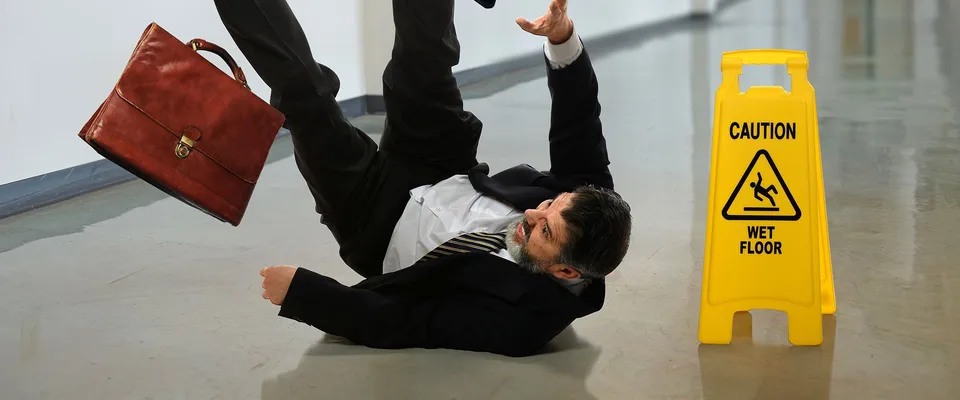How Do “Slip and Fall” Accidents Differ from “Trip and Fall” Accidents?
- February 9, 2021 @ 2:34 pm
- Written by admingil
- Categories: Slips & Falls

People often confuse these two types of accidents so we want to be sure that you are well informed when speaking with your attorney about your personal injury.
A slip and fall accident occurs when an individual is walking within a location and something slippery or wet causes him or her to fall. The wet or slippery surface may come from water that was spilled on the floor by an employee or customer, from rain, from oil that has spilled on a parking lot surface, among other causes.
On the other hand, a trip and fall accident occurs when an individual is walking and there is an impediment in his or her path that causes him or her to fall. An example of a “trip and fall” is when a patron trips over a sidewalk curb or parking lot bumper.
In order to recover damages for your fall, you must be able to prove that the premises owner knew or should have known that the substance was on the floor and posed a danger to your safety and well-being. For a trip and fall, you typically must be able to show that the owner knew or should have known that placing the impediment in that particular location may cause a pedestrian to trip. Once a substance is on the floor and the owner knows of it (or should have known about it), he or she must remedy the problem. Some of the ways that they can remedy the problem is by warning you of the condition by posting a sign or notice or by mopping the floor.
Florida law not only imposes duties upon landowners, but it also imposes requirements on you. For example, one is expected to keep a lookout and watch one’s step. Also, if the danger is “open and obvious”, you may not be able to recover for your fall.
“Slip and Fall” and “Trip and Fall” cases have one more thing in common, every case is unique and must be evaluated on a case by case basis. If you have experienced an injury as a result of a slippery or wet substance on the floor or as a result of an impediment in your way, you may consider contacting a Florida personal injury attorney.
Don’t forget to CALL JOHN BALES ATTORNEYS. Our Florida injury attorneys and client managers have helped thousands of clients get the money and benefits they deserved for their premise liability related injuries.
LIFE DOESN’T WAIT. CALL 1-800-CALL JOHN.
Health Care Facilities
If you are seriously injured, you may end up at a health care facility more specialized than the hospitals we are all used to. If you need this kind of care, you might even be transferred from your original hospital to one of these facilities:
A trauma center handles patients who have sustained a sudden and serious physical injury. They are ranked from Level I to Level IV, with the most serious cases at Level I facilities. Because they are expensive to run, they are not common; patients outside major cities may have to be airlifted to one.
A rehabilitation center is a facility where patients work to reestablish or relearn abilities they lost because of a serious injury, through therapy. Physical therapy helps with movement or prevents loss of movement, while occupational therapy might focus on relearning activities of daily life or finding ways to perform them despite a new disability.
Burn centers focus on patients with serious burns. They not only treat burn injuries, but work to help patients return to everyday life, often with therapists, social workers, psychiatrists, and other professionals who are not conventional doctors.
Assisted living facilities may be appropriate for injury victims who need long-term physical or occupational therapy and help with everyday living. This might be true of someone with a severe brain injury or spinal damage. In addition to providing meals and housekeeping, as at a nursing home, the staff at an assisted living facility works with patients to help them regain independence and abilities. Some patients are able to return home eventually; others may need to remain in a facility throughout their lives.
Home care is an option for patients whose injuries do not require full-time hospitalization. A nurse or other health care professional might visit every day or a few times a week. Depending on the injuries, the professional might do anything from changing bandages to administering a treatment with an IV to helping with personal needs.
